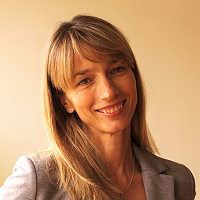Course title:
Diachronic semantics
Course code: PSL203
Course status: Elective
Course leader: Ida Raffaelli
Course instructor: Ida Raffaelli
Language of instruction: English
Total hours: 8S
Form of instruction: Seminar
ECTS credits: 4
Course content by topics:
This course aims to introduce to the students the fundamental theoretical perspectives on the relations between synchrony and diachrony with regard to various periods and directions in linguistics as well as to the basic concepts and principles of diachronic semantics from pre- structuralism (Bréal, Meillet), structuralism (Saussure, Jakobson) to cognitive linguistics (Geeraerts, Blank). A special focus is placed on more contemporary approaches to diachronic semantics in which diachronic analysis of semantic structures is used in order to clarify the relations between structural stability of lexical categories and their dynamic structure, which makes it possible to define and describe types of semantic change and patterns of language behaviour that bear influence on their structure in diachronic perspective. In this way, it is emphasized that in semantic structures no firm dividing line between synchrony and diachrony is found; rather, they are observed as a unified structural continuum. This model of description makes it possible to gain an integral insight into the structure of lexical categories, which should be the basis for determining the scope of diachronic semantics in the reconstruction of semantic, but also of conceptual structures, i.e. of encyclopeadic data. Within the framework of such interpretation of diachronic semantics special attention is paid to the description of polysemy as “the synchronic reflection of diachronic changes” and to the principles of the functioning of lexical categories in relation to other lexemes (synonymy, semantic fields, etc.) in diachronic perspective. The importance of diachronic semantics lies in the fact that its results can be used to complement and clarify certain synchronic aspects of relations within the language system, for example in lexicology, phraseology, etc.
Learning outcomes at course level:
1) To identify specific features of pre-structuralist, structuralist and poststructuralist approaches to the interpretation of semantic change; 2) To compare and discuss the fundamental features of approaches to semantic change in the three periods in linguistics; 3) To explain and critically assess diachronic semantics as a linguistics discipline with regard to its place in relation to other similar disciplines (e.g. etymology); 4) To compare similarities and differences in semantic changes that occur in related and nonrelated languages.; 5) To critically evaluate fundamental methods of diachronic semantics.
Learning outcomes at programme level:
| IU1 | IU2 | IU3 | IU4 | IU5 | IU6 | IU7 | IU8 |
| x | x | x | x |
Reading list:
Blank, A. and Koch, P. (1999). Historical Semantics and Cognition. Berlin, New York: Mouton de Gruyter.; Eckard, R. et al. (2003). Words in Time – Diachronic Semantics from Different Points of View. Mouton de Gruyter.; Geeraerts, D. (1997). Diachronic Prototype Semantics – A Contribution to Historical Lexicology. Oxford: Clarendon Press.; Raffaelli, I. (2000). Neki vidovi kognitivne semantike u rekonstrukciji semantičkih struktura. Suvremena lingvistika 49-50, pp. 125-142.; Raffaelli, I. (2009). Značenje kroz vrijeme – Poglavlja iz dijakronijske semantike.
Zagreb. Disput; Raffaelli, I. (2012). The Conceptual Category of Light in Croatian: A diachronic perspective. In: Cognitive Linguistics between Universallity and Variation. Brdar, Mario ; Raffaelli, Ida ; Žic Fuchs,Milena (eds.): Cambridge : Cambridge Scholar Press, pp. 383-410.; Ullmann, S. (1983). Semantics. An Introduction to the Science of Meaning. Oxford: Basil Blackwell.
Assessment of student achievement: course attendance Quality assurance mechanism: student survey

